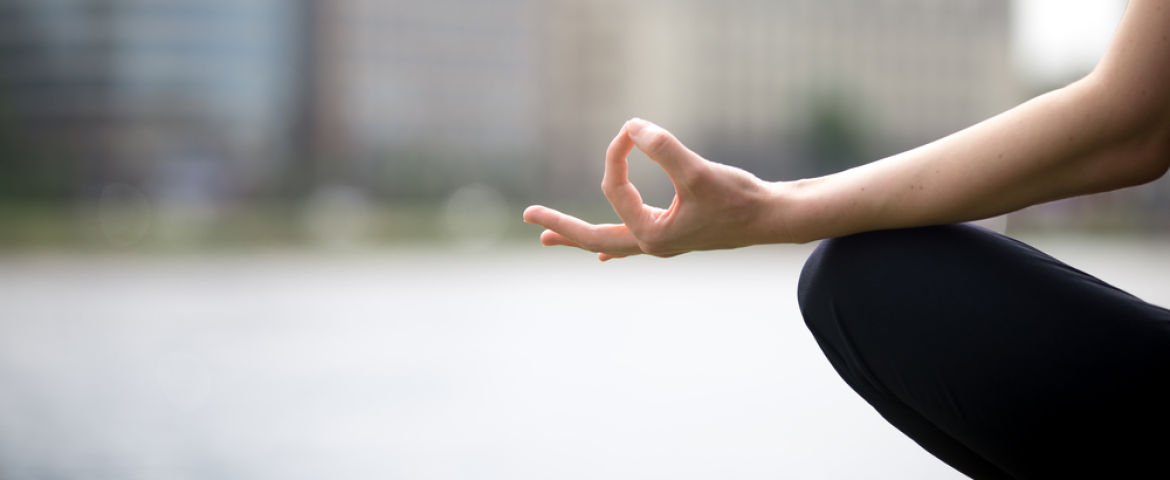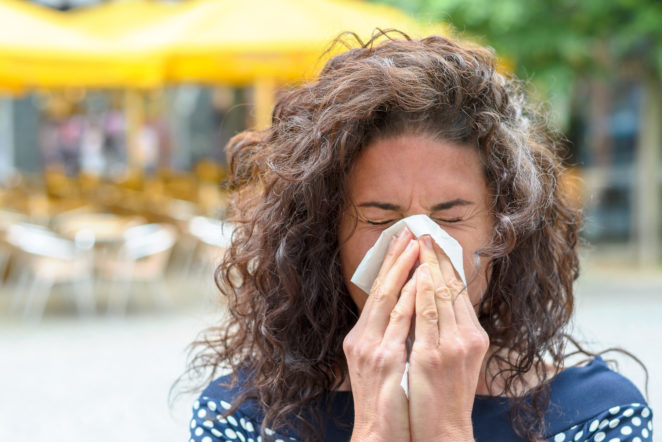By Angie Chandler, NBC-HWC, NASM-CPT, FLT-vLE
The more you know yourself when stressful situations strike, the better you can plan how you’ll deal with it. Let’s face it, if you’re here and reading this, you know what stress is. Upon hearing the word “stress,” many people automatically think of the negative, damage-causing kind: distress. However, there is more than one type of stress, and some are actually good for you. Whether the source is internal or external, perceived as good or bad, understanding stress is the first step toward knowing how to manage it.
Here are the various types of stress, how you can recognize them and ways to manage the negative stress for a healthier you.
Good vs. Bad Stress
Distress – or “bad” stress – is described as great pain, anxiety or sorrow with acute physical or mental suffering or affliction. This is what most of us associate with the word stress. Eustress – or good stress – is defined as stress that is healthy, or gives one a feeling of fulfillment or other positive feelings.
Distress
- Acute Distress is having or experiencing a rapid onset of stress in short, but severe, phases. It can be a devastating event in our life that brings about negative thoughts, feelings and possibly actions. Some physical manifestations can be vomiting or tension headaches.
- Chronic Distress is long-lasting, recurrent stress or characterized by long suffering. It is the ongoing, daily stress of negative situations in our lives; unhappy marriage, dysfunctional family, an unfulfilling job, political problems, etc.
- Episodic Distress is the stress we put on ourselves. It comes and goes when we make unrealistic or unreasonable demands on ourselves to accomplish goals. It can bring on ceaseless worrying or persistent physical symptoms similar to those found in acute stress.
Physical and mental health can be greatly compromised when distress develops. Studies show that the effect of negative stress, especially when exposed to stressors long-term, can increase the chance of a heart attack, stroke, cancer, and chronic conditions such as asthma may be experienced more intensely during times of stress. Accumulated stress that has built over time and seems to be unending can even, as we know, lead one to violence or self-harm.
Take a moment this week to consider what stress is in your life and start to develop a personal plan as to how you will first understand and then manage your stress.
Eustress
- Acute Eustress happens quickly when an event or interaction causes good feelings, such as a marriage proposal, the winning touchdown, etc.
- Chronic Eustress is prolonged positive feelings and is beneficial to the body. Situations like enjoying your job, having healthy relationships, and exercising regularly can activate these feelings. Even though events can add pressure, it’s a healthy pressure that keeps you moving forward.
This type of stress is still considered a “stressor” for the body, but in a helpful way. As opposed to a negative reaction, it results in a sense of meaning, hoping and positivity that is correlated with life satisfaction and overall wellbeing.
Relieve bad stress: how to move away from your distress toward eustress
Simply knowing we have the power to cause eustress more frequently can lower distress immediately. The state of flow is the feeling of “all is right with the world” or being “in the zone.” Feelings of happiness, security, relaxation, flexibility, harmony, and ease are associated with this state. We can cause more of this by causing experiences in our day that set us up to feel good.

Make each day flow
Here are the guidelines. Mihaly Csikszentmihalyi, one of the pioneers in the science and study of happiness, describes flow as a mind state where “…people experience deep enjoyment, creativity, and a total involvement with life.” He points to five ways through which one can get in “the zone:”
- Setting goals that have clear and immediate feedback.
- Becoming immersed in the particular activity.
- Paying attention to what is happening in the moment.
- Learning to enjoy immediate experience.
- Proportioning one’s skills to the challenge at hand.
The more we understand about how our body and mind respond, as well as adapt to stress, helps us take control. The more we try to begin new healthy lifestyle habits, the more confidence we build in our ability to be strong and resilient through stressful times in life. Eventually, flow can become more intuitive the more you give yourself these experiences.
Tune in to your distress triggers:
- Too busy?
- Attention pulled in too many directions?
- Project deadlines?
- Overwhelmed?
Know your physical body and mental thought cues:
- “When I am not sleeping well, it’s time to…”
- “When I can’t concentrate at work, I will…”
- “When food becomes my self-soothing tool, I need…”
- “When my stomach is in knots, I slow down to…”
Ways to manage when negativity strikes:
Create a list of go-to stress relievers you’ll have on hand when it’s time to get back on track. Some people count on:
- Quiet space for rest and reflection, meditation, or prayer.
- Slow down–regression now can result in progression later.
- Strive to understand the anatomy of stress.
- Build a healthy support system – people, places, or things that help you stay grounded.
- Self-care, proper nutrition, adequate exercise and enough sleep.
- Positive reframing of events – what, if anything, can we view as a gift?
Try the following to get started:
- Stop what you’re doing and take three slow, deep breaths – by tapping into our parasympathetic nervous system, we can help relieve the physical body immediately
- Stretch to relieve muscle tension and try relaxation techniques such as meditation, yoga and tai chi–just a few minutes goes a long way.
- Practice rhythmic physical activity like walking or riding a bike daily – self-soothing and meditative experiences we can give ourselves for relief and calm
- Balance lifestyle habits and activities that make you feel happier and accomplished – pair together a joyful activity with a less desirable one such as reading a chapter of your favorite book while riding the exercise bike
Here are some stress prevention strategies:
- Experiment with creating flow in your days by engaging in activities that nothing else seems to matter; writing, artistic activity, physical activity, presenting, teaching, etc.
- Develop a daily self-care routine with clear intentions, goals and action steps you’ll take to keep yourself in a calm, mindful place.
- Reframe your experiences as learning opportunities and life lessons.
- Assess and rescript your personal narrative – practice kind thoughts and words to yourself to promote positivity and self-love.
- Think deeply and identify beliefs that may be holding you in a stressful situation or make notes about how you have successfully moved through stressful times in the past.
- Talk things out with a good listener; professional health coach, counselor or trusted friend
Take a moment this week to consider what stress is in your life. Bring awareness about the type of stress and how it affects you by writing in a journal, making a list or telling somebody. Be specific on the physical, mental, emotional and spiritual aspects of its effect. Observe how well, or not, you adapt to change. Start to develop a personal plan as to how you will first understand and then manage your stress.
About the Author: Angela Chandler, NBHWC, NASM-CPT is a health coach in Priority Health’s Wellness Department. She holds the National board-certification for Health & Wellness Coaches and National Academy of Sports Medicine-certified personal trainer. Her professional experiences continue to fuel her passion for writing health and wellness content. Angie partners with people in a positive, respectful, yet playful way that brings out their best and generates inspiration to sustain healthy lifestyle habits!


